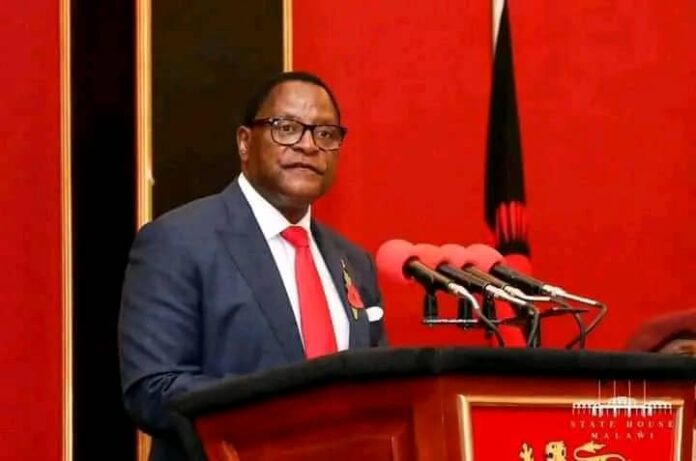By Burnett Munthali
As Malawi navigates its economic challenges and prepares for the 2025 general elections, President Lazarus Chakwera has revealed that he is actively reflecting on areas where his government needs to make significant changes. In his recent address to the nation, Chakwera acknowledged the growing expectations from the public and expressed a willingness to make necessary adjustments to improve governance and address the country’s pressing issues.
President Chakwera’s admission that his government must make changes comes amid mounting dissatisfaction over several areas of governance. Key concerns from the public include rising costs of living, slow economic recovery, and unmet campaign promises. Citizens are particularly frustrated by what they perceive as sluggish progress in addressing corruption, unemployment, and infrastructure development.

In his speech, Chakwera candidly admitted that the expectations of the people had not always aligned with the pace of progress made by his administration. “I am fully aware that many of you feel that the change you were promised is not happening fast enough,” he said. “This government is still learning and evolving, and we are listening to the concerns of Malawians.”
While the President did not provide an exhaustive list of the specific changes he is considering, he highlighted key sectors where reform and improvement are urgently needed:
1. Economic Reforms: Economic growth has been slower than expected, with inflation, the depreciation of the Malawi Kwacha, and the high cost of living continuing to strain citizens. Chakwera acknowledged that economic reforms were crucial to stabilize the currency, reduce poverty, and create jobs. He suggested that more aggressive measures would be taken to address these issues, particularly in terms of fiscal discipline and boosting local industries.
2. Public Sector Efficiency: The inefficiency of the public sector has been another point of contention. Many critics argue that state institutions are marred by bureaucratic red tape and lack of accountability. Chakwera highlighted the need to restructure and modernize public services to better serve the people. He vowed to prioritize administrative reforms aimed at ensuring government agencies operate more efficiently.
3. Addressing Corruption: The fight against corruption has been a cornerstone of Chakwera’s campaign since coming into office. However, progress has been slow, and critics argue that the government has not done enough to tackle corruption at all levels. President Chakwera stated that he would be re-evaluating anti-corruption strategies and strengthening the institutions responsible for upholding integrity in government.
4. Improved Healthcare and Education: Chakwera recognized that healthcare and education are critical areas where the government’s performance has not lived up to expectations. Citizens continue to demand better access to quality healthcare and education, particularly in rural areas. He reiterated that the government would push for reforms to improve service delivery in these sectors, ensuring that resources are directed where they are most needed.
Despite acknowledging these areas for improvement, President Chakwera urged Malawians to remain patient and united in the face of the challenges the country faces. He reminded citizens that change takes time, and while progress may seem slow, the government is working tirelessly to address the issues at hand.
Chakwera also reiterated his call for collaboration between the government, the private sector, civil society, and ordinary citizens in driving the country forward. “We must all be part of the solution. No one can do it alone,” he said.
As Malawi heads towards the 2025 general elections, President Chakwera’s openness about the need for change signals a critical moment in his leadership. His willingness to admit that the government must evolve in response to public concerns could work to his advantage, showing humility and a commitment to improvement. However, political analysts note that the government’s actions in the coming months will be crucial in determining whether Chakwera can regain the trust of the electorate.
Some political analysts, have stated, “Chakwera’s reflection on areas for change could resonate well with the electorate, but he must deliver on his promises. The people will want to see tangible improvements, especially in areas like the economy and public services, if he is to maintain their confidence.”
As President Chakwera continues to reflect on where change is needed, the focus now shifts to the government’s next steps. Political observers will be keenly watching how quickly and effectively these reforms are implemented in the lead-up to the 2025 elections.
Ultimately, the President’s acknowledgment of the need for change could mark the beginning of a new phase in Malawi’s political landscape, one that emphasizes greater responsiveness to the needs of the people and a commitment to governance that works for all citizens.



